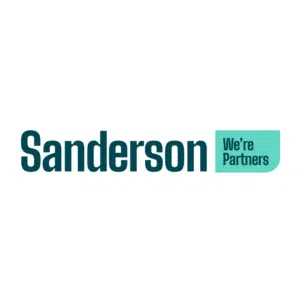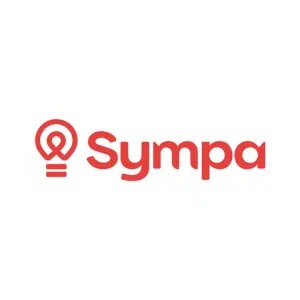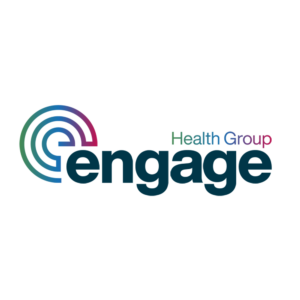The HR World speaks to industry leaders about their careers and life – what advice would they pass on and what wisdom brought them to where they are now.
Gary McDowell, Chief HR Officer with educational resource supplier Findel discusses how to get top grades in leadership development.

04 March 2024

Story by
Gary McDowell, Chief HR Officer, Findel
Gary McDowell, Chief HR Officer with educational resource supplier Findel discusses how to get top grades in leadership development.
Leadership development needs to be a long-term initiative
For an organisation to evolve and grow in the right direction, those at the helm must aspire and be empowered to be great leaders. This represents an area where HR professionals as key business partners have a critical role.
Sometimes our experiences show us that leadership development has a risk of being ‘hit and miss’, yet given its importance, it cannot be overlooked. If scoped and executed poorly without a well-crafted, strategic mindset, it runs the risk of generating a simple, ineffective box-ticking exercise amongst leaders. Not only does this dilute leadership potential within an organisation, but it also builds a negative reputation of HR as a profession.
Instead, leadership development needs to be viewed as a long-term programme of activities grounded in an organisation’s mission, role, sector and values. There needs to be a culture where time is built in for development. This, in turn, will foster a forward-thinking mindset in all colleagues.
Not only will this demonstrate a firm commitment to personnel development, but it will also enhance HR’s profile as a mission-critical business partner and lay a strong foundation for wider workforce strategies.
Ensuring partners and development programmes align with your organisation
Although this is easy to say, how does it work in practice?
An example at Findel is the ‘permission to learn’ mindset we have begun to nurture over the years and continually develop, reflecting our role as an educational resource supplier.
By adopting this mindset with an ‘always on’ approach to learning and development, we are working to create a dynamic, forward-thinking atmosphere where self-improvement feeds into everything. We know this is a lengthy process but one we are determined to see through.
This outlook also influences which external partners we work with. As with any development tool, external partners must avoid a ‘vanilla’ programme which only serves to disengage colleagues. Helping us to avoid this risk involves scrutinising providers to ensure that programmes align with our goals, mission and values.
To make these programmes more impactful and resonant, it is important to consider leadership development centred around real issues and core business priorities.
At Findel, we apply this approach to our company-wide workforce development strategy which is tailored around the five core pillars of the business. Making it more dynamic is doing away with regular, timetabled appraisals to create an atmosphere of continual improvement rather than when a meeting with a line manager is due.
Harness science in leadership development
Many of us are aware of the use of behavioural sciences in corporate settings, for example, with our Myers Briggs tests. Yet when we think about leadership development, our experiences have taught us that another way to make it impactful is harnessing the power of modern science.
With our leadership development programme at Findel, we took this approach by using sophisticated psychometric testing to generate accurate behavioural profiles. This is something we are also looking to roll out wider across the business.
By having a leadership development programme which is interactive and personalised, bolstered by the behavioural profiles, we see a real opportunity to create our leadership cohorts that are empowered to do the best for themselves and their teams. Complementing this is the power of technology in modern HR practices through our commitment to digital development tools which helps nurture our dynamic ‘permission to learn’ environment.
Get leadership development pushed from all sides
Strategic and tactical leadership and workforce development that uses bespoke, interactive programmes and address key issues enhances HR’s profile as a core business partner.

One of the ways this occurs is through endorsement levels, which come in many guises.
At Findel, we have seen learnings from our leadership development programme be used to inform additional support measures such as tailored training requirements. With our leadership development programme, we advise managers to embrace features such as psychometric insights, and we see them refer to their profiles consistently when working with teams.
Such is the level of our leaders’ endorsement of our development programmes that our CEO is an active user of tools, typifying the ‘leading from the front’ principle that every leader must practice. In addition, colleagues reporting to the C-suite also see the benefits of our dynamic development programme creating more empowered leadership.
This level of endorsement, and the positive influence it has on HR’s professional profile, helps lay the groundwork for wider workforce strategies. But we are aware this is a very fluid concept which is why our approach is constantly developing as we work to best implement it.
Complement leadership development with wider HR strategies
Many of us in the HR field are fully aware that it is a profession rooted in empathy and listening skills. This is important not just for those in HR, but it is also something we are working to instil in our leadership development strategy. Alongside providing another tool to equip and empower better leaders, it is also a critical skill that runs alongside health and wellbeing support tactics.
By ensuring leaders are vigilant to behaviours that are symptomatic of poor health and wellbeing, we can support all colleagues in a more organic, collaborative way. This also reinforces the value of Employee Voice Surveys and ensures that they are not another HR-generated administrative burden but are a meaningful enterprise aimed at supporting colleagues. At Findel, our leadership’s performance and capabilities are regularly noted as a positive sentiment amongst colleagues.
Leadership development is a powerful boost for the EDI agenda
Progressing EDI is more than simply modernising organisations and adopting societal trends through mandated policies, training and reading lists. At Findel, we see it as a core commercial priority as it represents a key part of being a responsible business partner to the education sector. As such, it is a key part of our leadership development plans.
We recognise that EDI is a complex area that is evolving and requires constant learning. This aligns with the ‘permission to learn’ mindset we cultivate in our leadership and development strategy. In addition, positioning EDI as a key business priority serves as a shining example of how we can shape our leadership to be cognisant of its strategic importance, which in turn will facilitate wider EDI activities.
Share
Latest to join the HR Partner Directory
Want to become a partner?
Please get in touch and let’s talk about how we can help you make an impact on the future of work.







